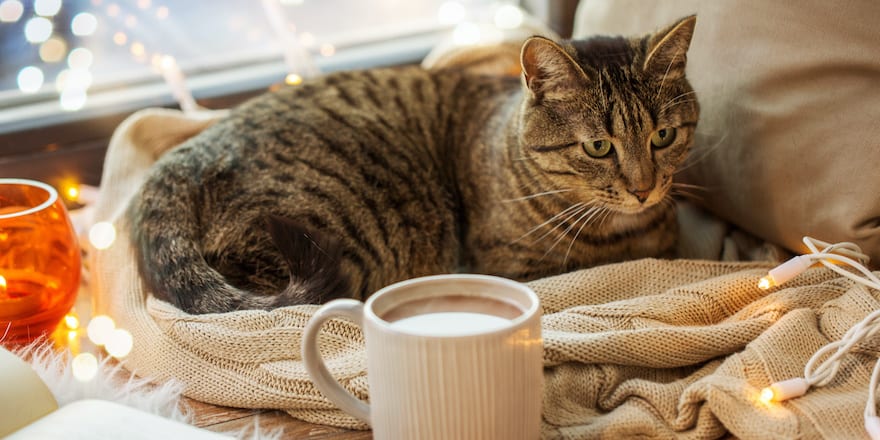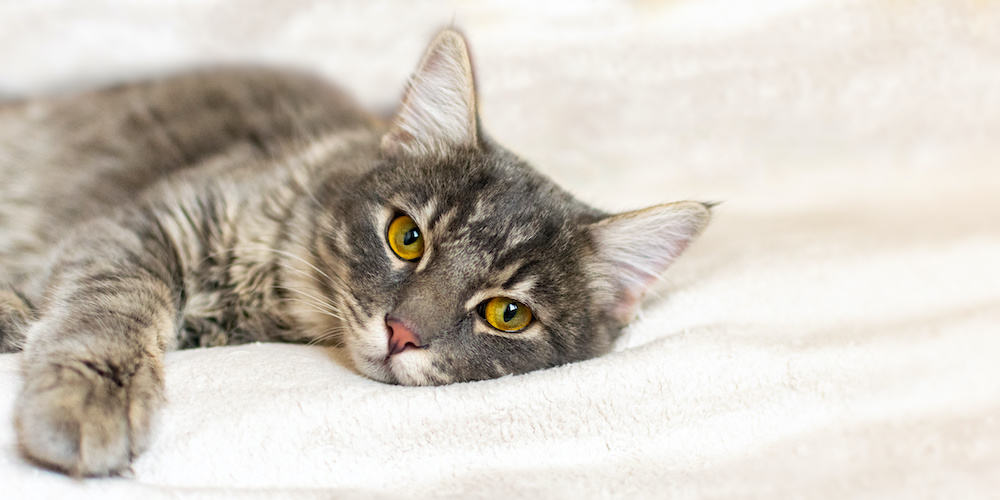This is a matter of concern for many owners, and rightly so. If your cat stops eating, I advise you first of all to differentiate between the two symptoms below.
Anorexia, when an animal stops eating completely, and hyporexia, when the appetite is reduced. Sometimes, other symptoms are also visible.
Making this distinction is necessary because the degree of urgency is not the same. In case of anorexia, the health consequences for your cat can quickly become more severe.
The causes of loss of appetite are numerous, ranging from behavioral origins to the presence of an illness.
A veterinary consultation is essential and allows determination of the cause of anorexia or hyporexia in your cat. This step is important because treatment and management depend on the diagnosis.
📚 Read also | A veterinarian selected the best cat kibbles
Why is my cat not eating anymore?
A sign of a problem in this predator
“My cat is not eating anymore!”: during veterinary consultations, we are frequently alerted by owners who notice an unusual lack of appetite in their feline.
Your cat is a predator. To avoid seeming vulnerable, it shows few signs of pain and discomfort. However, you may still be alerted by certain behaviors, like loss of appetite.
Behavioral causes
Cats are very sensitive to stress. Any source of anxiety in their environment can impact their behavior. You can then notice a loss of appetite in your little companion.
Observe your cat closely to determine if it’s a behavioral issue. The slightest change in its environment can disturb it. For example, have you recently moved? Is there a new animal (or a new human!) in your home?
Your cat loves its eating routine. A change in its habits can then cause a loss of appetite. Have you recently changed the location of its bowl? Or the brand of its kibbles?
An illness
If we have less appetite when we are sick, the same goes for our cats!
Several illnesses can lead to anorexia or hyporexia. It could be due to arthritis, an infectious disease, or even poisoning, for example, from ingesting a toxic plant.
In the case of a suspected illness, other parameters are considered in the veterinary diagnosis, such as your cat’s age, gender, or vaccination status.
For example, if your female cat is not spayed, she can suffer from a disease called pyometra. This is a uterine infection where loss of appetite is often present. For more on this disease, I invite you to read this study.
Oral pain
This is a situation we frequently encounter in veterinary clinics: a loss of appetite related to the presence of tartar. Since tartar is painful, your cat eats less because of the pain in its mouth or teeth.
In this case, scaling performed by your veterinarian is enough to solve the problem.
Moreover, if your cat has a broken tooth, the pain caused may also be responsible for a loss of appetite.
📚 Read also | The best cat wet foods online according to a veterinarian
If he is neither eating nor drinking
Adipsia
It is challenging to know how much water your cat drinks daily. This is especially true if its diet is moist.
Indeed, kibbles are dry and therefore contain less water. A cat fed on kibbles drinks more water. But if your cat eats wet food, it covers more of its water needs. Thus, it drinks less from its water bowl.
Generally speaking, you will have difficulty noticing your cat drinking less. Adipsia refers to when an animal stops drinking entirely.
The risk of dehydration
But if you observe adipsia in your cat, I recommend that you consult your veterinarian urgently. Due to the risk of dehydration and its consequences, rapid management and rehydration are necessary.
Nevertheless, your cat may also drink more water than usual. This is called polydipsia. When a cat eats less and drinks more, several illnesses, such as kidney failure, could be the cause.

If he is neither eating nor drinking and is sleeping a lot
When a cat sleeps more than usual, this behavior can sometimes be considered a symptom. It can be due to apathy or listlessness. If you notice your cat eating less and sleeping more, you should report it to your veterinarian. Any clinical sign is part of the diagnosis.
Additionally, other symptoms may accompany a loss of appetite such as vomiting or even fever.
If he doesn’t eat and doesn’t defecate
Is your cat no longer having bowel movements? If he goes more frequently to the litter box without defecating, it is called an intestinal blockage. The transit is halted due to the presence of an obstruction. It can notably be:
- an ingested foreign object: like a string swallowed by your cat
- an accumulation of feces (constipation)
- the presence of hairballs
I draw your attention to the fact that a cat that cannot defecate can easily be mistaken for a cat that cannot urinate.
If your cat is not urinating, it is likely a urinary obstruction. A loss of appetite can also be observed in this case.
Intestinal blockage and urinary obstruction represent a cat emergency. You should therefore quickly contact your veterinarian.
The consequences of a cat’s loss of appetite
Due to the metabolism of cats, anorexia can quickly have severe consequences. This is not the case with dogs who are more tolerant.
When a loss of appetite persists for several days in a cat, a hepatic lipidosis can develop.
Hepatic lipidosis is a liver disease. In the case of reduced food consumption, the liver starts accumulating lipids. Vital prognosis may then be involved and veterinary hospitalization is essential.
Anorexia or hyporexia: a veterinary consultation is necessary! But I strongly recommend contacting your veterinarian urgently if your cat hasn’t eaten at all for more than 24 hours. Hospitalization and assisted feeding should be implemented.
Sources and scientific studies
Gwenaël Outters, “Anorexia in cats is an emergency”, La Semaine Vétérinaire, no. 1434, 21/01/2011, p. 34 and 35
Samantha Taylor et al., « 2022 ISFM Consensus Guidelines on Management of the Inappetent Hospitalised Cat », Journal of Feline Medicine and Surgery, 1er 2022



